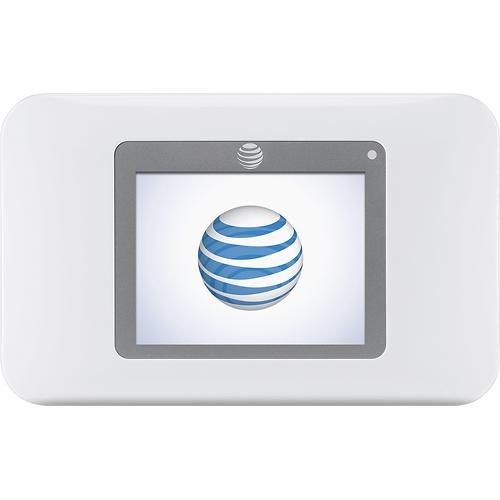AT&T expanded Wi-Fi options for its prepaid customer base with the addition of its first mobile hotspot for GoPhone, with new data-only plans.
GoPhone customers can buy the AT&T Unite hotspot from NetGear starting tomorrow for $99.99 at about 1,000 Wal-Mart stores across the country, with no annual contract, credit check or deposit.
The plans include options for 250 MB of data for $15 per week, or 5 GB of data for $50 per month. Users can connect up to 10 Wi-Fi enabled devices via the Unite plans.
A&T also boosted its Wi-Fi and mobile coverage at the University of California, Berkeley. Along with expanded Wi-Fi coverage for the campus-wide AirBears network, AT&T also installed a distributed antenna system that will serve mobile users in Griffiths Hall and Etcheverry Hall and deployed Cells on Wheels (COWs) at the university’s Memorial Stadium to enhance game day service.
–In-flight Wi-Fi provider Gogo Inc. is expanding the services that it offers to aircraft passengers. The company is launching Gogo Talk & Text, which allows passengers to send and receive text messages or make voice calls, once they have downloaded an app that lets them use Wi-FI as an extension of GSM or CDMA cellular networks. The app is available for iOS or Android phones
Ash ElDifrawi, Gogo’s chief marketing officer, said that the company sees Text & Talk primarily as a text messaging product for commercial airlines in the U.S., the voice call capability is being requested by international air carriers and business aviation customers.
“The great part about this technology is that it doesn’t require us to install anything new to an aircraft and we can bundle it with or without connectivity,” added ElDifrawi. “We have already launched the service with some of our business aviation customers and we are talking with our commercial airline partners about launching the service for their passengers.”
Gogo also is tapping into social media, partnering with location-sharing app maker Glympse Inc. to allow passengers to share their location while on a flying aircraft that has Gogo’s Wi-Fi service. The free app, once launched, will provide movement, speed and updated arrival times to a selected email address even after a passenger has powered down a wireless device.
Gogo called the app “ideal for allowing loved ones or colleagues to see accurate arrival time for better coordination of ground transportation or for simply giving others peace of mind.”
—ABI Research had a couple of interesting tidbits on small cells and Wi-Fi recently. The company reported “steady growth” in the femtocell market this year, with installations rising by 70% over last year in the enterprise market. ABI expects femtocell shipments to increase tenfold by 2018, from 3.75 million this year to 37.45 million. An ecosystem is developing as vendors try to capture a share of that growing market, driven by operators’ need for indoor voice and data capacity, particularly in the consumer and small-to-medium enterprise segment, ABI said.
Competition continues between femtocells and Wi-Fi, as both migrate to new technologies: 802.11ac, in the case of Wi-Fi, and 3G to LTE for femtos.
“The market is generally promising for femtocells and Wi-Fi, and while progressively growing and advancing, both technologies are looking to serve wider markets and provide more revenue-generating applications and business models,” comments Ahmed Ali, research analyst at ABI Research.
—Ruckus Wireless Inc. has prevailed in a patent infringement case brought by competitor Netgear.
The jury ruling in the U.S. District Court for the district of Delaware cleared Ruckus of accusations of infringement on two of Netgear’s patents, which it had purchased from patent licensing entity Adaptix Inc. in 2010. Netgear acquired a total of five patents from Adaptix and filed suit against Ruckus shortly after purchasing them. Three of those parents were later found invalid, and the remaining two were the subject of the suit.

